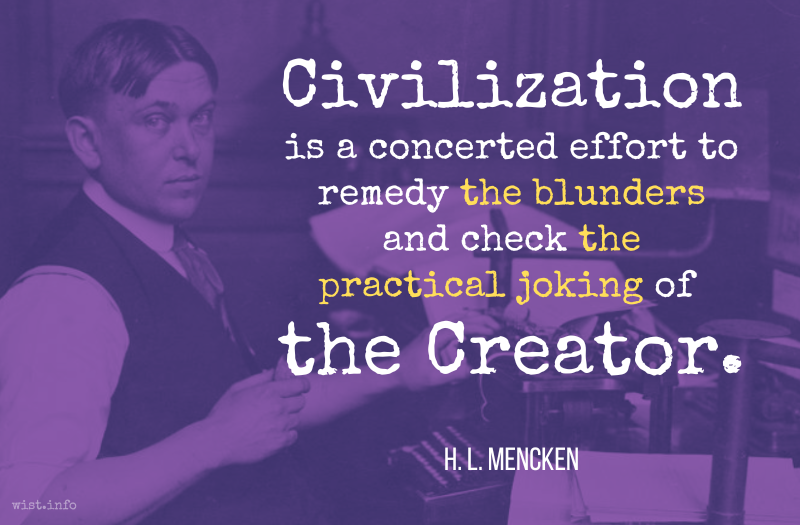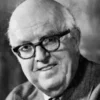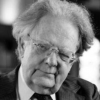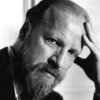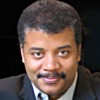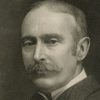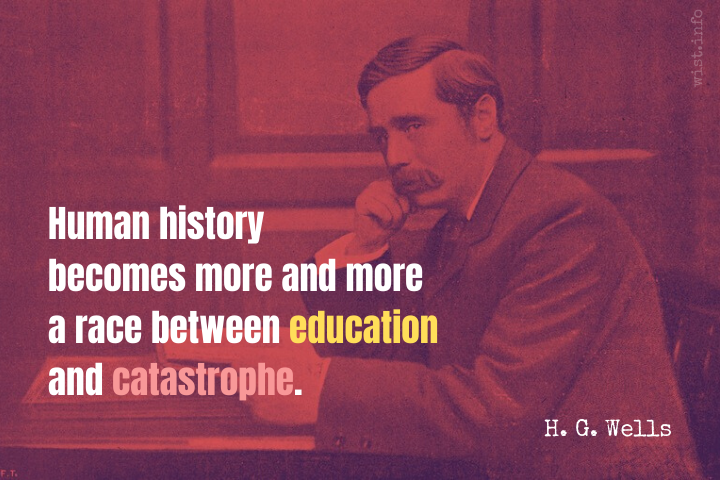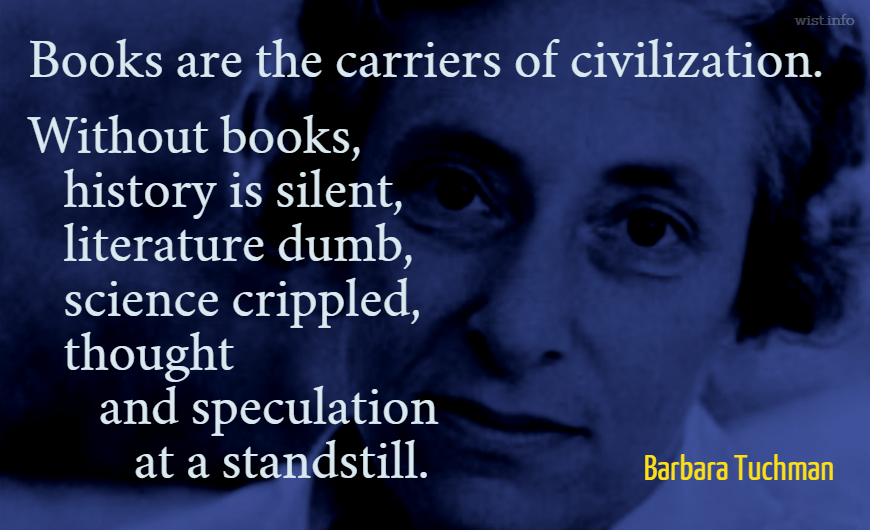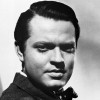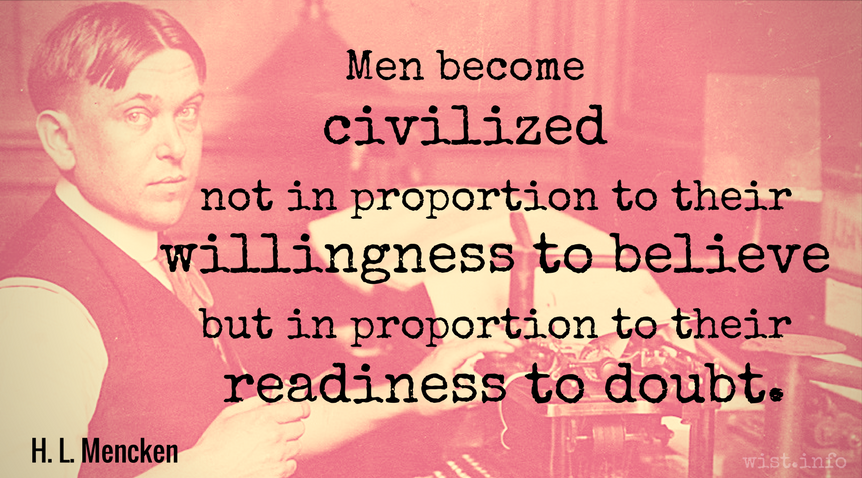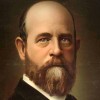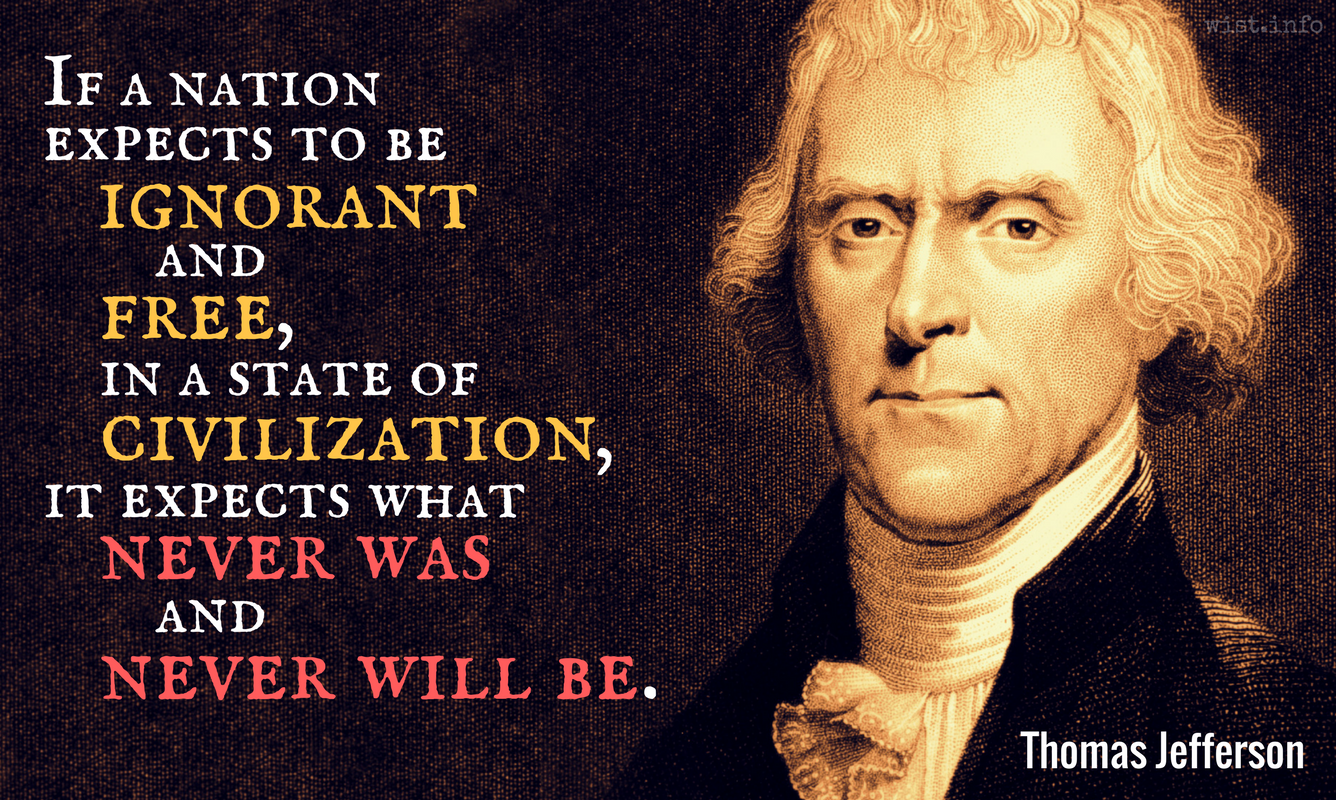Civilization has taught us to eat with a fork, but even now if nobody is around we use our fingers.
Quotations about:
civilization
Note not all quotations have been tagged, so Search may find additional quotes on this topic.
We will never have true civilization until we have learned to recognize the rights of others.
Civilization is a concerted effort to remedy the blunders and check the practical joking of the Creator.
H. L. Mencken (1880-1956) American writer and journalist [Henry Lewis Mencken]
A Little Book in C Major, ch. 2, § 2 (1916)
(Source)
Now, nature, as I am only too well aware, has her enthusiasts, but on the whole, I am not to be counted among them. To put it rather bluntly, I am not the type who wants to go back to the land; I am the type who wants to go back to the hotel.
When the judgment day comes, civilization will have an alibi: “I never took a human life, I only sold the fellow the gun to take it with.”
I think the health of our civilization, the depth of our awareness about the underpinnings of our culture, and our concern for the future can all be tested by how well we support our libraries.
Carl Sagan (1934-1996) American scientist and writer
Cosmos, ch. 11 “The Persistence of Memory” (1980)
(Source)
Break the skin of civilization and you find the ape, roaring and red-handed.
All of our exalted technological progress, civilization for that matter, is comparable to an axe in the hand of a pathological criminal.
Albert Einstein (1879-1955) German-American physicist
Letter to Heinrich Zangger (6 Dec 1917), in Collected Papers, Vol. 8, # 403 (1987) [tr. Hentschel]
(Source)
The invention of gunpowder and the constant improvement of firearms are enough in themselves to show that the advance of civilization has done nothing practical to alter or deflect the impulse to destroy the enemy, which is central to the very idea of war.
[Die Erfindung des Pulvers, die immer weiter gehende Ausbildung des Feuergewehrs zeigen schon hinreichend, dase die in dem Begriff des Krieges liegende Tendenz zur Vernichtung des Gegners auch faktisch durch die zunehmende Bildung keineswegs gestört oder abgelenkt worden ist.]
Karl von Clausewitz (1780-1831) Prussian soldier, historian, military theorist
On War [Vom Kriege], Book 1, ch. 1 “What Is War? [Was ist der Krieg?],” § 3 (1.1.3) (1832) [tr. Howard & Paret (1976)]
(Source)
(Source (German)). Alternate translations:
The invention of gunpowder, the constant progress of improvements in the construction of firearms are sufficient proofs that the tendency to destroy the adversary which lies at the bottom of the conception of war, is in no way changed or modified through the progress of civilisation.
[tr. Graham (1873)]
The invention of gunpowder and the advances continually being made in the development of firearms, in themselves show clearly enough that the demand for the destruction of the enemy, inherent in the theoretical conception of war, has been in no way actually weakened or diverted by the advance of civilization
[tr. Jolles (1943)]
We are so much accustomed to the humanitarian outlook that we forget how little it counted in earlier ages of civilisation. Ask any decent person in England or America what he thinks matters most in human conduct: five to one his answer will be “kindness.” It’s not a word that would have crossed the lips of any of the earlier heroes of this series. If you had asked St. Francis what mattered in life, he would, we know, have answered “chastity, obedience and poverty”; if you had asked Dante or Michelangelo, they might have answered “disdain of baseness and injustice”; if you had asked Goethe, he would have said “to live in the whole and the beautiful.” But kindness, never. Our ancestors didn’t use the word, and they did not greatly value the quality — except perhaps insofar as they valued compassion.
Kenneth Clark (1903-1983) British art historian, museum director, broadcaster
Civilisation, A Personal View, ch. 13 “Heroic Materialism” (1969)
(Source)
People sometimes tell me that they prefer barbarism to civilisation. I doubt if they have given it a long enough trial. Like the people of Alexandria, they are bored by civilisation; but all the evidence suggests that the boredom of barbarism is infinitely greater. Quite apart from the discomforts and privations, there was no escape from it.
Kenneth Clark (1903-1983) British art historian, museum director, broadcaster
Civilisation, A Personal View, ch. 1 “The Skin of Our Teeth” (1969)
(Source)
Many clever men like you have trusted to civilization. Many clever Babylonians, many clever Egyptians, many clever men at the end of Rome. Can you tell me, in a world that is flagrant with the failures of civilisation, what there is particularly immortal about yours?
Gilbert Keith Chesterton (1874-1936) English journalist and writer
The Napoleon of Notting Hill, Book 1, ch. 2 (1904)
(Source)
There is no document of civilization which is not at the same time a document of barbarism.
[Es ist niemals ein Dokument der Kultur, ohne zugleich ein solches der Barbarei zu sein.]
Walter Benjamin (1892-1940) German Jewish philosopher, cultural critic, essayist.
“Theses on the Philosophy of History [On the Concept of History; Über den Begriff der Geschichte]”, Thesis 7 (1940) [tr. Zohn (1973)]
(Source)
(Source (German)). Alternate translation:
There has never been a document of culture, which is not simultaneously one of barbarism.
[tr. Redmond (2001)]
Civilization is hideously fragile, you know that; there’s not much between us and the horrors underneath. Just about a coat of varnish, wouldn’t you say?
C. P. Snow (1905-1980) English novelist, physical chemist, bureaucrat [Charles Percy Snow]
A Coat of Varnish, ch. 4 [Luria] (1979)
(Source)
Civilization is the progress toward a society of privacy. The savage’s whole existence is public, ruled by the laws of his tribe. Civilization is the process of setting man free from men.
Ayn Rand (1905-1982) Russian-American writer, philosopher
The Fountainhead, ch. 18 [Roark] (1943)
(Source)
Civilization, let me tell you what it is. First the soldier, then the merchant, then the priest, then the lawyer. The merchant hires the soldier and priest to conquer the country for him. First the soldier, he is a murderer; then the priest, he is a liar; then the merchant, he is a thief; and they all bring in the lawyer to make their laws and defend their deeds, and there you have your civilization!
Katherine Anne Porter (1890-1980) American journalist, essayist, author, political activist [b. Callie Russell Porter]
Ship of Fools, Part 2 [Hansen] (1962)
(Source)
Civilization, a much abused word, stands for a high matter quite apart from telephones and electric lights. It is a matter of imponderables, of delight in the things of the mind, of love of beauty, of honor, grace, courtesy, delicate feeling.
Edith Hamilton (1867-1963) American educator, author, classicist
The Greek Way, ch. 6 (1930)
(Source)
It is lack of confidence, more than anything else, that kills a civilization. We can destroy ourselves by cynicism and disillusion, just as effectively as by bombs.
Kenneth Clark (1903-1983) British art historian, museum director, broadcaster
Civilization: A Personal View, ch. 13 “Heroic Materialism” (1969)
(Source)
Civilization is a fiction which becomes a fact only as long as everyone can believe in it. It is the cynic, rather than the rebel, who pulls down the whole flimsy structure periodically throughout history.
Civilization is a perishable commodity.
Helen MacInnes (1907-1985) Scottish-American writer
The Venetian Affair, ch. 11 [Fenner] (1963)
(Source)
We must realize that man’s nature will remain the same so long as he remains man; that civilization is but a slight coverlet beneath which the dominant beast sleeps lightly and ever ready to awake.
After all, the true civilization is where every man gives to every other, every right that he claims for himself.
Robert Green Ingersoll (1833-1899) American lawyer, agnostic, orator
Interview, Washington Post (14 Nov 1880)
(Source)
Reprinted in The Works of Robert G. Ingersoll, Vol. 8 "Interviews" (1900).
You think that a wall as solid as the earth separates civilization from barbarism. I tell you the division is a thread, a sheet of glass. A touch here, a push there, and you bring back the reign of Saturn.
John Buchan (1875-1940) Scottish novelist, poet, and politician; Governor-General of Canada (1935 -1940)
The Power-House, ch. 3 (1916)
(Source)
Civilization is a method of living, an attitude of equal respect for all men.
Why weren’t these problems obvious to the Maya kings, who could surely see their forests vanishing and their hills becoming eroded? Part of the reason was that the kings were able to insulate themselves from problems afflicting the rest of society. By extracting wealth from commoners, they could remain well fed while everyone else was slowly starving. What’s more, the kings were occupied with their own power struggles. They had to concentrate on fighting one another and keeping up their images through ostentatious displays of wealth. By insulating themselves in the short run from the problems of society, the elite merely bought themselves the privilege of being among the last to starve.
Jared Diamond (b. 1937) American geographer, historian, ornithologist, author
“The Ends of the World as We Know Them,” New York Times (1 Jan 2005)
(Source)
In fact, one of the main lesson to be learned from the collapses of the Maya, Anasazi, Easter Islanders, and those other past societies (as well as from the recent collapse of the Soviet Union) is that a society’s steep decline may begin only a decade or two after the society reaches its peak numbers, wealth, and power. […] The reason is simple: maximum population, wealth, resource consumption, and waste production mean maximum environmental impact, approaching the limit where impact outstrips resources. On reflection, it’s no surprise that declines of societies tend to follow swiftly on their peaks.
Jared Diamond (b. 1937) American geographer, historian, ornithologist, author
Collapse: How Societies Choose to Fail or Succeed, Part 4, ch. 16 (2005)
(Source)
There is a breed of lay and social scientist who will forever cling to a concept of “defeating by ignoring.” Hence, when out of the muck of their own neuroses rise these self-proclaimed Fuhrers, there is this well-meaning body who tell us that if we turn both eyes and cheeks, the nutsies will disappear simply by lack of exposure.
My guess is that, in this case, exposure is tantamount to education; and education here, is a most salutary instruction into the mentalities, the motives and the modus operandi of an animal pack that is discounted by the aged maxim that “it can’t happen here.” So might have said the Goethes and the Einsteins of a pre-war Germany, who thought then, as we do now, that civilization by itself protects against a public acceptance of the uncivilized.
What is desperately needed to combat any ism is precisely what “Playboy” has given us — an interview in-depth that shows us the facets of the enemy. Yes, gentlemen, you may be knocked for supposedly lending some kind of credence to a brand of lunacy. But my guess is that you should be given a commendation for a public service of infinite value.
Rod Serling (1924-1975) American screenwriter, playwright, television producer, narrator
Letter to Playboy Magazine (Jun 1966)
(Source)
Addressing criticism of the magazine for running in April 1966 an Alex Haley interview of American Nazi Party founder George Lincoln Rockwell. Quoted in Anne Serling, As I Knew Him: My Dad, Rod Serling (2013).
There’s something in all of us that wants to drift toward a mob, where we can all say the same thing without having to think about it, because everybody is all alike except people that we can hate or persecute. Every time we use words, we’re either fighting against this tendency or giving in to it. When we fight against it, we’re taking the side of genuine and permanent human civilization.
Northrop Frye (1912-1991) Canadian literary critic and literary theorist
The Educated Imagination, Talk 6 “The Vocation of Eloquence” (1963)
(Source)
Besides, I like libraries. It makes me feel comfortable and secure to have walls of words, beautiful and wise, all around me. I always feel better when I can see that there is something to hold back the shadows.
After our ages-long journey from savagery to civility, let’s hope we haven’t bought a round-trip ticket.
Cullen Hightower (1923-2008) American writer, aphorist, salesman.
(Attributed)
Attributed in Forbes magazine (29 Mar 1993).
I had discovered what one man could do to another. I am not talking about one man killing another with a gun, or dropping a bomb on him or blowing him up or torpedoing him. I am thinking of the vileness beyond all words that went on, year after year, in the totalitarian states. It is bad enough to say that so many Jews were exterminated in this way and that, so many people liquidated — lovely, elegant word — but there were things done during that period from which I still have to avert my mind lest I should be physically sick. They were not done by the headhunters of New Guinea, or by some primitive tribe in the Amazon. They were done, skilfully, coldly, by educated men, doctors, lawyers, by men with a tradition of civilization behind them, to beings of their own kind. I must say that anyone who moved through those years without understanding that man produces evil as a bee produces honey must have been blind or wrong in the head.
William Golding (1911-1983) British novelist, playwright, poet
“Lord of the Flies as Fable,” Lecture, UCLA (1962)
(Source)
Reprinted in The Hot Gates (1965).
Culture is the name for what people are interested in, their thoughts, their models, the books they read and the speeches they hear, their table-talk, gossip controversies, historical sense and scientific training, the values they appreciate, the quality of life they admire. All communities have a culture. It is the climate of their civilization.
Walter Lippmann (1889-1974) American journalist and author
A Preface to Politics, ch. 9 “Revolution and Culture” (1913)
(Source)
Civilization is to groups what intelligence is to individuals. It is a means of combining the intelligence of many to achieve ongoing group adaptation.
And speech he has learned, and thought
So swift, and the temper of mind
To dwell within cities, and not to lie bare
Amid the keen, biting frosts
Or cower beneath pelting rain;
Full of resource against all that comes to him
is Man. Against Death alone
He is left with no defence.[καὶ φθέγμα καὶ ἀνεμόεν φρόνημα καὶ ἀστυνόμους
ὀργὰς ἐδιδάξατο καὶ δυσαύλων
πάγων ὑπαίθρεια καὶ δύσομβρα φεύγειν βέλη
παντοπόρος: ἄπορος ἐπ᾽ οὐδὲν ἔρχεται
τὸ μέλλον: Ἅιδα μόνον φεῦξιν οὐκ ἐπάξεται.]Sophocles (496-406 BC) Greek tragic playwright
Antigone, l. 354ff, Stasimon 1, Strophe 2 [Chorus] (441 BC) [tr. Kitto (1962)]
(Source)
Original Greek. Alternate translations:
Language and lofty thought,
And dispositions meet for order'd cities,
These he hath taught himself; -- and how to shun
The shafts of comfortless winter, --
Both those which smite when the sky is clear,
And those which fall in showers; --
with plans for all things,
Planless in nothing, meets he the future!
Of death alone the avoidance
No foreign aid will bring.
[tr. Donaldson (1848)]
Speech and the wind-swift speed of counsel and civic wit,
He hath learnt for himself all these; and the arrowy rain to fly
And the nipping airs that freeze, 'neath the open winter sky.
He hath provision for all: fell plague he hath learnt to endure;
Safe whate'er may befall: yet for death he hath found no cure.
[tr. Storr (1859)]
Wise utterance and wind-swift thought, and city-moulding mind,
And shelter from the clear-eyed power of biting frost,
He hath taught him, and to shun the sharp, roof-penetrating rain, --
Full of resource, without device he meets no coming time;
From Death alone he shall not find reprieve;
No league may gain him that relief.
[tr. Campbell (1873)]
Speech and thought fast as the wind and the moods that give order to a city he has taught himself, and how to flee the arrows of the inhospitable frost under clear skies and the arrows of the storming rain. He has resource for everything. Lacking resource in nothing he strides towards what must come. From Death alone he shall procure no escape.
[tr. Jebb (1891)]
And speech, and wind-swift thought, and all the moods that mould a state, hath he taught himself; and how to flee the arrows of the frost, when 'tis hard lodging under the clear sky, and the arrows of the rushing rain; yea, he hath resource for all; without resource he meets nothing that must come: only against Death shall he call for aid in vain.
[tr. Jebb (1917)]
Words also, and thought as rapid as air,
He fashions to his good use; statecraft is his,
And his the skill that deflects the arrows of snow,
The spears of winter rain: from every wind
He has made himself secure -- from all but one:
In the late wind of death he cannot stand.
[tr. Fitts/Fitzgerald (1939)]
The use of language, the wind-swift motion of brain
He learnt; found out the laws of living together
In cities, building him shelter against the rain
And wintry weather.
There is nothing beyond his power. His subtlety
Meeteth all chance, all danger conquereth.
For every ill he hath found its remedy,
Save only death.
[tr. Watling (1947), l. 295ff]
Language, and thought like the wind
and the feelings that make the town,
he has taught himself, and shelter against the cold,
refuge from rain. He can always help himself.
He faces no future helpless. There's only death
that he cannot find an escape from.
[tr. Wyckoff (1954)]
And speech and thought, quick as the wind
and the mood and mind for law that rules the city --
all these he has taught himself
and shelter from the arrows of the frost
when there's rough lodging under the cold clear sky
and the shafts of lashing rain --
ready, resourceful man!
Never without resources
never an impasse as he marches on the future --
only Death, from Death alone he will find no rescue.
[tr. Fagles (1982)]
Language and a mind swift as the wind
For making plans --
These he has taught himself --
And the character to live in cities under law.
He's learned to take cover from a frost
And escape sharp arrows of sleet.
He has the means to handle every need,
Never steps toward the future without the means.
Except for Death: He's got no relief from that.
[tr. Woodruff (2001)]
Both language and thought swift as wind
and impulses that govern cities,
he has taught himself, as well as how
to escape the shafts of rain
while encamped beneath open skies.
All resourceful, he approaches no future thing
to come without resource. From Hades alone
he will not contrive escape.
[tr. Tyrell/Bennett (2002)]
And man has learnt speech and thought, swifter than the wind he mastered
And learnt to govern his cities well
And this omniscient being has learnt how to avoid the blasts of the wild open air: the arrows of the freezing night, the dreadful wind driven piercing gale!
He’s prepared for all events bar Death and from Death he can find no escape.
[tr. Theodoridis (2004)]
He’s taught himself speech and wind-swift thought,
trained his feelings for communal civic life,
learning to escape the icy shafts of frost,
volleys of pelting rain in winter storms,
the harsh life lived under the open sky.
That’s man -- so resourceful in all he does.
There’s no event his skill cannot confront --
other than death -- that alone he cannot shun.
[tr. Johnston (2005), l. 405ff]
He taught himself language and wind-like thought and city-ruling urges, how to flee the slings of frost under winter's clear sky and the arrows of stormy rain, ever-resourceful. Against no possibility is he at a loss. For death alone he finds no aid.
[tr. Thomas (2005)]
Man’s urge for change and his need for stability have always balanced and checked each other, and our current vocabulary, which distinguishes between two factions, the progressives and the conservatives, indicates a state of affairs in which this balance has been thrown out of order. No civilization — the man-made artifact to house successive generations — would ever have been possible without a framework of stability, to provide the wherein for the flux of change.
Hannah Arendt (1906-1975) German-American philosopher, political theorist
“On Violence,” Crises of the Republic (1972)
(Source)
If a predatory enemy to our species can’t unite everyone on Earth to fight it, I’m left wondering what hope remains for Civilization.
Neil deGrasse Tyson (b. 1958) American astrophysicist, author, orator
Twitter (19 Apr 2020)
(Source)
Regarding the COVID-19 pandemic.
Society in its full sense […] is never an entity separable from the individuals who compose it. No individual can arrive even at the threshold of his potentialities without a culture in which he participates. Conversely, no civilization has in it any element which in the last analysis is not the contribution of an individual.
Ruth Benedict (1887-1947) American anthropologist
Patterns of Culture, ch. 8 “The Individual and Culture” (1934)
(Source)
Sometimes quoted as "The community is never an entity ...."
There is no accepted test of civilization. It is not wealth, or the degree of comfort, or the average duration of life, or the increase of knowledge. All such tests would be disputed. In default of any other measure, may it not be suggested that as good a measure as any is the degree to which justice is carried out, the degree to which men are sensitive as to wrong-doing and desirous to right it? If that be the test, a trial such as that of Servetus is a trial of the people among whom it takes place, and his condemnation is theirs also.
John Macdonell (1846-1921) British jurist
Historical Trials, ch. 7 (1927)
(Source)
John Calvin ordered Michael Servetus be imprisoned for heresy in Geneva; he was tried, then burned at the stake in 1553.
The newspapers still talk about glory but the average man, thank God, has got rid of that illusion. It is a damned bore, with a stalemate as the most probable outcome, but one has to see it through, and see it through with the knowledge that whichever side wins, civilisation in Europe will be pipped for the next 30 years. Don’t indulge in Romance here, Malcolm, or suppose that an era of jolly little nationalities is dawning. We shall be much too much occupied with pestilence and poverty to reconstruct.
E. M. Forster (1879-1970) English novelist, essayist, critic, librettist [Edward Morgan Forster]
Letter to Malcolm Darling (6 Nov 1914)
(Source)
The world is very full of people — appallingly full; it has never been so full before — and they are all tumbling over each other. Most of these people one doesn’t know and some of them one doesn’t like; doesn’t like the colour of their skins, say, or the shapes of their noses, or the way they blow them or don’t blow them, or the way they talk, or their smell or their clothes, or their fondness for jazz or their dislike of jazz, and so on. Well, what is one to do?
There are two solutions. One of them is the Nazi solution. If you don’t like people, kill them, banish them, segregate them, and then strut up and down proclaiming that you are the salt of the earth.
The other way is much less thrilling, but it is on the whole the way of the democracies, and I prefer it. If you don’t like people, put up with them as well as you can. Don’t try to love them; you can’t, you’ll only strain yourself. But try to tolerate them. On the basis of that tolerance a civilised future may be built.
E. M. Forster (1879-1970) English novelist, essayist, critic, librettist [Edward Morgan Forster]
“The Unsung Virtue of Tolerance,” radio broadcast (Jul 1941)
(Source)
Published as "Tolerance," Two Cheers for Democracy (1951)
Human history becomes more and more a race between education and catastrophe.
H.G. Wells (1866-1946) British writer [Herbert George Wells]
The Outline of History, Vol. 2, ch. 41, sec. 4 (1921)
(Source)
Also attributed to Wells: "Civilization is in a race between education and catastrophe. Let us learn the truth and spread it as far and wide as our circumstances allow. For the truth is the greatest weapon we have."
I realize that all society rests upon force. But all the great creative actions, all the decent human relations, occur during the intervals when force has not managed to come to the front. These intervals are what matter. I want them to be as frequent and as lengthy as possible, and I call them “civilization”.
E. M. Forster (1879-1970) English novelist, essayist, critic, librettist [Edward Morgan Forster]
“What I Believe,” The Nation (16 Jul 1938)
(Source)
Books are the carriers of civilization. Without books, history is silent, literature dumb, science crippled, thought and speculation at a standstill.
Barbara W. Tuchman (1912-1989) American historian and author
“Papyrus to Paperbacks: The World That Books Made,” Washington Post (30 Dec 1979)
(Source)
If there hadn’t been women we’d still be squatting in a cave eating raw meat, because we made civilization in order to impress our girlfriends.
Orson Welles (1915-1985) American writer, director, actor
Interview with David Frost, David Frost Show (12 May 1970)
(Source)
[T]here are historic situations in which refusal to defend the inheritance of a civilization, however imperfect, against tyranny and aggression may result in consequences even worse than war.
It is common to assume that human progress affects everyone — that even the dullest man, in these bright days, knows more than any man of, say, the Eighteenth Century, and is far more civilized. This assumption is quite erroneous. The men of the educated minority, no doubt, know more than their predecessors, and some of them, perhaps, it may be said that they are more civilized — though I should not like to be put to giving names — but the great masses of men, even in this inspired republic, are precisely where the mob was at the dawn of history. They are ignorant, they are dishonest, they are cowardly, they are ignoble. They know little if anything that is worth knowing, and there is not the slightest sign of a natural desire among them to increase their knowledge.
H. L. Mencken (1880-1956) American writer and journalist [Henry Lewis Mencken]
“Homo Neandertalensis,” Baltimore Evening Sun (29 Jun 1925)
(Source)
For to be civilized is to be incapable of giving unnecessary offense, it is to have some quality of consideration for all who cross our path.
Agnes Repplier (1855-1950) American writer
“A Question of Politeness,” Americans and Others (1912)
(Source)
Men become civilized not in proportion to their willingness to believe but in proportion to their readiness to doubt.
H. L. Mencken (1880-1956) American writer and journalist [Henry Lewis Mencken]
“What I Believe,” sec. 4, Forum and Century (Sep 1930)
(Source)
Civilization is not inherited; it has to be learned and earned by each generation anew; if the transmission should be interrupted for one century, civilization would die, and we should be savages again.
William James (Will) Durant (1885-1981) American historian, teacher, philosopher
The Lessons of History, ch. 13 “Is Progress Real?” (1968) [with Ariel Durant]
(Source)
What has destroyed every previous civilization has been the tendency to the unequal distribution of wealth and power. This same tendency, operating with increasing force, is observable in our civilization to-day, showing itself in every progressive community, and with greater intensity the more progressive the community. Wages and interest tend constantly to fall, rent to rise, the rich to become very much richer, the poor to become more helpless and hopeless, and the middle class to be swept away.
If a nation expects to be ignorant & free, in a state of civilisation, it expects what never was & never will be. The functionaries of every government have propensities to command at will the liberty & property of their constituents. there is no safe deposit for these but with the people themselves; nor can they be safe with them without information. Where the press is free and every man able to read, all is safe.
Thomas Jefferson (1743-1826) American political philosopher, polymath, statesman, US President (1801-09)
Letter to Charles Yancey (6 Jan 1816)
(Source)
A great civilization is not conquered from without until it has destroyed itself within. The essential causes of Rome’s decline lay in her people, her morals, her class struggle, her failing trade, her bureaucratic despotism, her stifling taxes, her consuming wars.
William James (Will) Durant (1885-1981) American historian, teacher, philosopher
The Story of Civilization, Vol. 3: Caesar and Christ (1944)
(Source)


